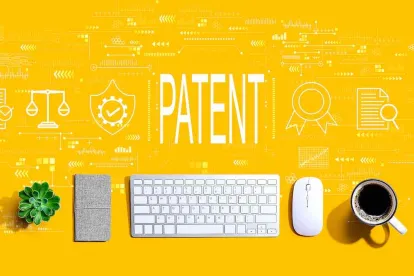Allgenesis Biotherapeutics Inc. v. Cloudbreak Therapeutics, LLC addresses whether an IPR petitioner can assert Article III standing on appeal based on potential infringement liability and potential preclusive effects on its patents.
Background
Cloudbreak owns U.S. Patent No. 10,149,820 (the “’820 patent”), which is directed to compositions and methods for treating pterygium. Allgenesis petitioned for inter partes review of all claims of the ’820 patent. The Patent Trial and Appeal Board (“PTAB” or “Board”) found that Allgenesis failed to show that Allgenesis’ PCT application anticipated claims 4 and 5 of the ’820 patent. The Board found that claims 4 and 5 of the ’820 patent were entitled to the priority date of the corresponding provisional application, which predated the PCT application. On appeal, Allgenesis argued that the PTAB erred in attributing the provisional’s priority date to the claims. Additionally, the PTAB determined that Allgenesis failed to show that claims 4 and 5 were obvious over multiple references because the claims were directed to unexpected results. On appeal, Allgenesis argued that the PTAB erred in determining that claims 4 and 5 were directed to unexpected results. However, despite Allgenesis’ issues on appeal, the Federal Circuit only addressed whether Allgenesis had standing to bring an appeal.
Issues
Does Allgenesis have standing under Article III to seek review of the PTAB’s decision?
Holding
Allgenesis does not have standing under Article III because it failed to establish an injury in fact.
Reasoning
While the Federal Circuit has jurisdiction to review final decisions of the Board, Article III of the U.S. Constitution limits jurisdiction to the adjudication of cases and controversies. Although a party does not need Article III standing to file an IPR petition, the party still requires Article III standing to seek review of the Board’s decision in the Federal Circuit. In particular, a party must show that it suffered an injury in fact. Allgenesis argued that it suffered an injury in fact based on the potential infringement liability stemming from its development of nintedanib treatments for pterygium. The Federal Circuit determined that Allgenesis failed to show that it has concrete plans for future activity that creates a substantial risk of future infringement or may cause the patentee to assert a claim of infringement. While Allgenesis submitted declarations asserting potential infringement liability, the declaration did not identify any of Allgenesis’ recent development activities or its plans for future clinical development. Furthermore, the Federal Circuit found the declaration was conclusory and failed to establish that Allgenesis had any concrete plans to develop and bring to market a nintedanib treatment for pterygium. Allgenesis also asserted settlement conversations as evidence of a likelihood of litigation for patent infringement when Allgenesis brings its product to market. The Federal Circuit found that this evidence was insufficient since Allgenesis did not make any assertions that Cloudbreak has sued or threatened to sue Allgenesis if it brings a nintedanib product to market. Accordingly, the Federal Circuit concluded that Allgenesis failed to show an injury in fact based on potential infringement liability.
Allgenesis also argued it suffered an injury in fact based on the Board’s priority determination. In particular, Allgenesis asserted that the Board’s relative priority determination affects the scope Allgenesis’ own patent rights because the PCT application and the ’820 patent are directed to the same invention. Allgenesis also asserted it suffered an injury in fact because the Board’s determination will have a preclusive effect on the scope of its pending patent application claiming priority to the PCT application. However, the Federal Circuit rejected this argument and determined that Allgenesis did not establish that the Board’s decision will have preclusive effect. The Federal Circuit relied on Best Medical International, Inc. v. Elekta Inc., 46 F.4th 1346 (Fed. Cir. 0222) to assert that collateral estoppel will not attach to the Board’s non-appealable priority determination. Additionally, the Federal Circuit determined that Allgenesis failed to articulate with any specificity how the Board’s priority determination will impact its issued patents or pending continuation applications which claim priority to its PCT application. The Federal Circuit concluded that Allgenesis’ general and nonspecific allegations were insufficient to meet its burden of establishing standing.



 />i
/>i

